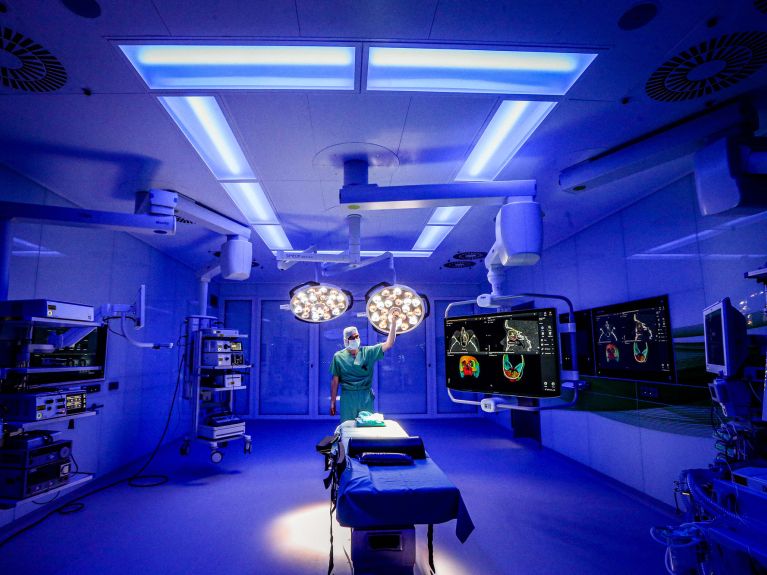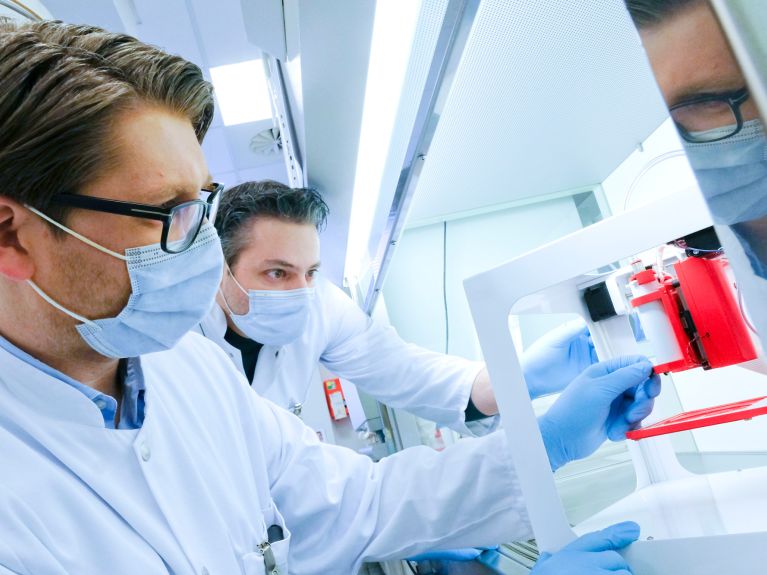Tomorrow’s medicine
Bypasses from the 3D printer, contact lenses for the ears, virtual reality glasses in the operating theatre: We present some innovations from Germany.

Digital operations
Virtual reality glasses, 3D imaging in real time, digital navigation aids – all of these are used in Europe’s most modern centre for eye and ear-nose-throat surgery. The eight fully digitised operating theatres opened at Essen University Hospital in April 2021. The innovative technology allows more precise surgery to be carried out and taught.
Bypasses from the 3D printer

If coronary blood vessels are blocked or constricted, a bypass is often the solution. The body’s own veins or arteries are used for this, though not all patients have blood vessels that are suitable. Cardiac specialist Dr Rouven Berndt from the University Medical Center Schleswig-Holstein (UKSH) has teamed up with researchers in the fields of medicine, biology and engineering from the technical universities of Kiel and Hamburg to develop the prototype of a 3D bioprinter capable of producing blood vessels from the body’s own cells.
A contact lens for the ear

A hearing aid loudspeaker that sits directly on the eardrum is to serve as a contact lens for the ear. It will make it possible for the wearer to hear sounds that other devices fail to pick up. With the support of the Natural and Medical Sciences Institute (NMI) at the University of Tübingen and the Fraunhofer Institute for Manufacturing Engineering and Automation IPA, the start-up Vibrosonic has developed the tiny prototype and hopes to have the lens ready for market launch in 2022.
Recycling scalpels and other surgical instruments

Disposable surgical instruments end up in a waste incinerator after use. A more sustainable approach would be to recycle them. This is what the Fraunhofer Research Institution for Materials Recycling and Resource Strategies IWKS and the IRED Institute for Recycling, Ecology & Design are working on. Their goal is to design a recycling system for hospitals that will allow used metal instruments to be fed back into the recovered substance cycle.
You would like to receive regular information about Germany? Subscribe here:


